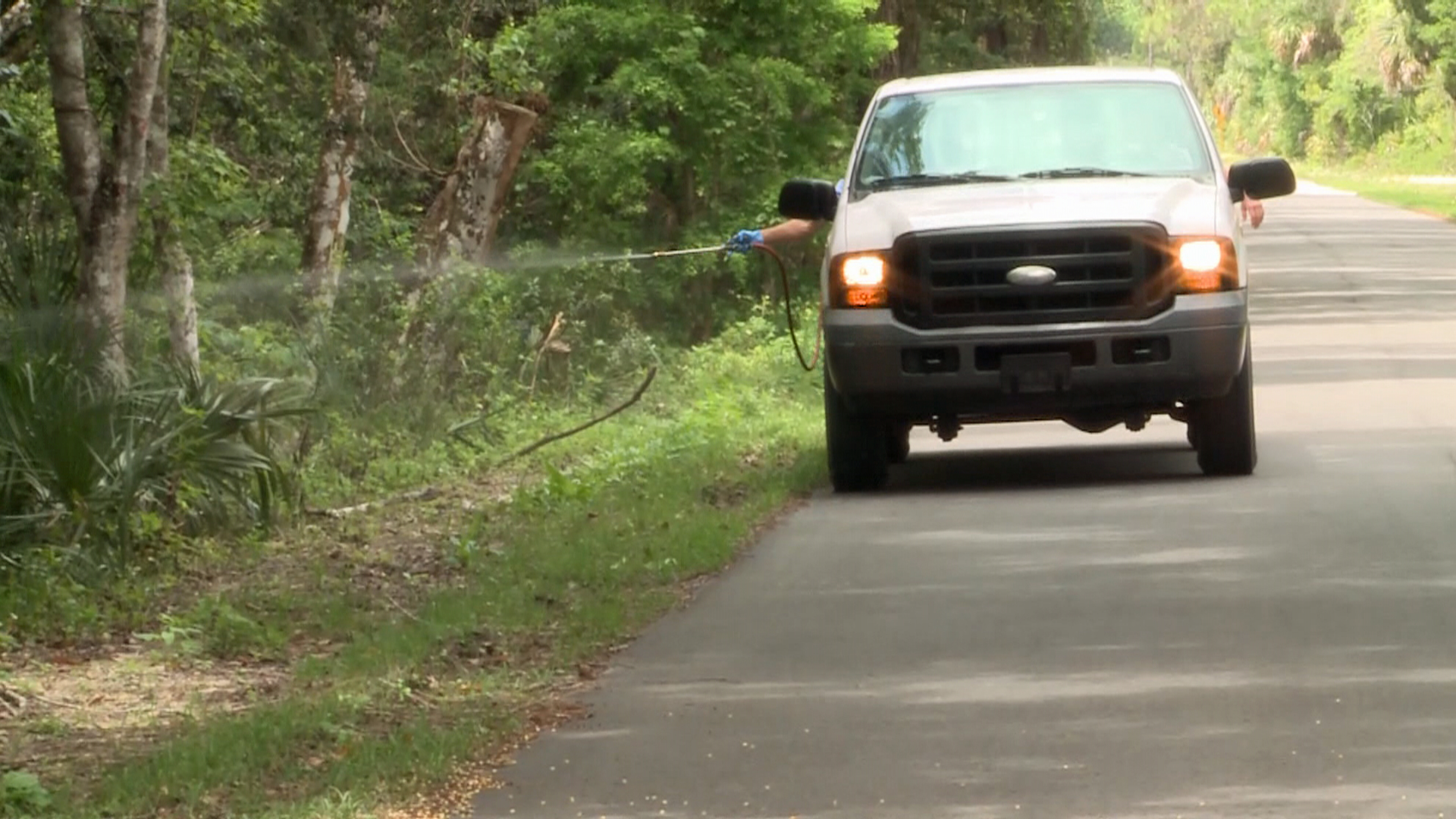TAMPA, FL -- They are aggressive, vicious blood suckers. And there's a good chance they are invading your neighborhood.
We're talking about a particular kind of mosquito that's exploding in the Bay area in numbers we haven't seen in a decade.
So, if you've been slapping, swatting and scratching more than usual, it’s not just your imagination.
The Bay Area has been invaded by Ades Taeniorthynchus, better known as the Black Salt Marsh Mosquito.
“They are biters, yes they are,” said Ron Montgomery, of Hillsborough County’s Mosquito Control Office.
Mosquito control workers first started noticing the problem in late May, then watched it balloon in June -- swarms of this particular mosquito, like they hadn't seen in 10 years.
Traps set overnight were snaring 20 times the number of aggressive biting bugs.
“This particular mosquito does prefer humans, and so it gets very aggressive when there is a human around it,” said Montgomery.
Where did they all come from?
Mosquito control says this particular species lays its eggs in dry marsh areas like the mangroves in South Tampa’s Picnic Island Park, or the coastal marshes of Gibsonton and Apollo Beach.
Those eggs can sit there for up to 10 years waiting to hatch.
In June, officials say the Bay Area got a perfect storm of high tides, wind-driven waves and heavy coastal rain that flooded the marsh.
The eggs hatched by the billions.
“If you're within two or three miles of the shoreline, you're going to encounter this mosquito,” said Montgomery.
The good news? Black salt marsh mosquitoes don't transmit diseases like Zika or West Nile.
The bad news? They're vicious. They can fly six to 10 miles. And they can bite right through thin clothing.
“My 5-year-old is torn up from them,” said Stacey Johnson, who lives in South Tampa. “They don't even like to go outside and play because of them.”
“There's never a time where I go outside that I'm not getting eaten alive by them,” said Alivea Bickley, visiting a park with her 2-year-old son.
Hillsborough and other coastal counties have been aggressively spraying 150 miles - 20,000 acres -- of coastal marshland, in order to kill the insects' larvae.
These aren't the kind of mosquitoes that breed in your backyard, so the best thing you can do, say officials, is to wear repellent until the buzz dies down.
Also consider wear light-colored clothing. Apparently mosquitoes are attracted to darker colors.


